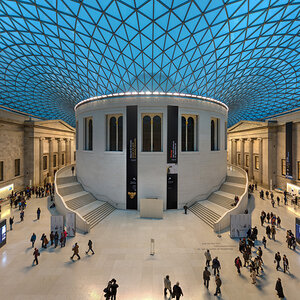Museums Faulted on Restitution of Nazi-Looted Artworks
Fifteen years after the Washington Principles on Nazi-Confiscated Art was signed by forty-four nations, including the United States, historians, legal experts, and Jewish groups say that a number of American museums have backtracked on their pledge to settle restitution claims and are blocking Holocaust survivors and their heirs from pursuing such claims, the New York Times reports.
In recent years, judges have dismissed several restitution cases after the museums involved argued that the claims had been filed too late. In some cases, institutions like the Detroit Institute of Arts, the Toledo Museum of Art, the Museum of Fine Arts Boston, and the Solomon R. Guggenheim Museum have attempted to deter claimants from filing suit by going to court first and asking judges to declare the museums the rightful owners of the works. Stuart E. Eizenstat, who negotiated the Washington Principles, told the Times that museums have adopted a harder line in the last several years, partly in response to victories in court and waning pressure from the U.S. government. "The essence of the Washington Principles comes down to one sentence," said Eizenstat. "Let decisions be made on the merits of the case rather than technical defenses."
Eizenstat has long argued that the courts are inherently ill-suited to resolving restitution cases and that the U.S. should create an independent mediation board, as several European countries have done. While the New York chapter of the Federal Bar Association has introduced a resolution calling for the creation of an independent commission, compliance might be difficult to mandate, as most American museums are privately run.
While no one disputes that it takes considerable effort and money to track artworks looted by the Nazis, few cases end up before a judge. Those critical of museum practices, including the Holocaust Art Restitution Project and the Commission for Art Recovery, note that problems most frequently arise in cases in which documentation is missing or it is unclear whether Jewish owners of the art freely parted with it or were coerced by Nazi authorities into selling it. Raymond Dowd, an attorney who has handled restitution claims, pointed out that museums often review the evidence and decide on their own if a case is valid — without making their research on a work's provenance or sale available publicly or for peer review.
Even if a museum is able to claim "clear title" on a work, bad feelings can linger for generations. German artist George Grosz's son, Martin, told the Times that his father saw one of his "stolen" works hanging at the Museum of Modern Art in New York City in 1953. "He was very reluctant to in any way assail or complain about the treatment that he got from anybody in the United States," Grosz said, explaining that his father never fought to recover the work. When refugees complained about treatment, his father would respond: "You should kiss the ground you're walking on because they let you in."






